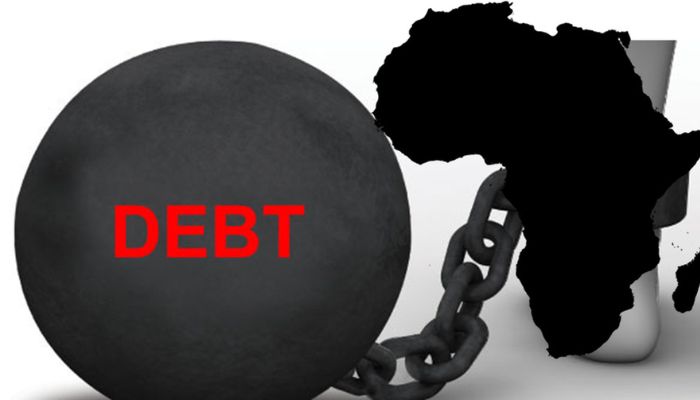Given the geometric increase in the amount of money spent on fuel subsidies and the attendant burden on the Nigerian economy, the Lagos Chamber of Commerce (LCCI) has reiterated the call for the government to take decisive steps in ending the scheme.
The national assembly had in April, approved N4 trillion for petrol subsidies for this year to offset higher global oil prices caused by the Russian war in Ukraine. The country which is Africa’s biggest oil producer has been frittering money away on subsidies as it relies on imports of all refined petrol products because the local refineries have been moribund for years.
In July, the Minister of Finance Budget and National Planning, Zainab Shamsuna Ahmed hinted that the government could spend up to N6.72 trillion for payment of fuel subsidy in 2023 if it continues with it. This amounts to nearly 70 percent increase from this year’s budget.
The government had earlier this year hinted on ending the petrol subsidy but with agitations from different quarters that the timing was wrong, it decided to continue which warranted the extra-budgetary provision.
However, the Lagos Chamber of Commerce, in its assessment of the nation’s economic growth performance in the last quarter of 2022, looking at the Gross Domestic Product (GDP) report by the National Bureau of Statistics, stated that the government needs to put appropriate measures in place to finally end the payment and channel such funds to other critical sectors that require urgent attention to boost the economy.
Examining the 2022 second quarter GDP report which indicated a growth rate of 3.54 percent, the LCCI in a statement signed by its Director-General, Dr. Chinyere Almona, highlighted some threats to future growth which need special attention.
The chamber observed that the oil sector has consistently recorded negative growth in recent years, as indicated in the GDP, and said that as a major source of the country’s revenue currently, the government should redouble its effort to combat oil theft, and vandalism of facilities in oil-producing areas which are the major causes of decline in crude oil production.
“The oil sector has consistently recorded negative growth for the ninth consecutive quarter, contracting again by -11.8% y/y in Q2 2022 following a higher contraction of -26% y/y in Q1. The average daily crude oil production in Q2 was 1.43mbpd even lower than 1.49mbpd produced in Q1. If oil revenue makes up more than 80 percent of government revenue, we expect the government to tackle the menace of oil theft and pipeline vandalism with a sterner approach,” LCCI stated.
The chamber also urged the Nigerian government to continue with its drive of boosting the non-oil sector of the economy to contribute significantly in foreign exchange earnings through non-oil exports.
The non-oil export according to the Q2 2022 GDP report, grew by 4.8 percent year-on-year against 6.1 percent year-on-year in Q1 ‘22. The key drivers within the non-oil economy include transportation and storage (51.7 percent y/y), finance and insurance (18.5 percent y/y), telecommunications (7.7 percent y/y), trade (4.5 percent y/y), real estate (4.4 percent y/y), construction (4.0 percent y/y), manufacturing (3 percent y/y), and agriculture (1.2 percent y/y). These sectors combined, account for 78.3 percent of total GDP in the second quarter of 2022.
“We urge the government to continue with the non-oil campaigns and interventions to sustain the targeted financing towards boosting non-oil export for enhanced foreign exchange earnings,” LCCI stated.
It further observed that the growth of 1.2 percent recorded for agriculture and 3 percent for manufacturing were very low when compared to other sectors that grew above 5 percent, noting that such is indicative of the threats facing the sectors that power the country’s real sector. Such threats include insecurity, soaring energy costs, and general challenges in the operating environment.
It said “The woes in these two sectors (agriculture and manufacturing) are responsible for the frightening rise in our inflation rate. And with the excruciating burden from debt service, subsidy payments, and worsening insecurity, many more production activities may be constrained in the coming months.
“The Federal Government needs to sustain its targeted interventions in selected critical sectors like agriculture, manufacturing, export infrastructure, tackling insecurity, and free more money from subsidy payments.”
The chamber also expressed worry that there may not be any allocation for capital projects in the 2023 budget.
The finance minister while addressing the House of Representatives Committee on Finance last week Monday, said the federal government may not be able to allocate funds for capital projects in the nation’s budget for the 2023 fiscal year.
READ ALSO: CPPE Urges Govt To Tackle Oil Theft, Insecurity To Boost Productivity In Nigerian Economy
While presenting the 2023-2025 Medium Term Expenditure Framework and Fiscal Strategy Paper (MTEF/FSP) before the House committee, Dr Ahmed, said the budget deficit is estimated to increase from N7.35 trillion in 2022 to between N11.30 trillion and N12.41 trillion in 2023, depending on some fiscal policy decisions on subsidy payment for fuel, with the aggregate expenditure estimated at N19.76 trillion.
The minister lamented that crude oil production challenges and subsidy deductions by the NNPC have greatly caused a negative impact on the nation’s revenue growth profile, and stressed the need for urgent measures to be taken to address the fiscal crisis.
The LCCI urged the government “to tackle oil theft to earn more foreign exchange, borrow from cheaper sources to reduce the burden of debt servicing, and take a decisive step towards removing fuel subsidies.”
Victor Ezeja is a passionate journalist with six years of experience writing on economy, politics and energy. He holds a Masters degree in Mass Communication.



















Follow Us